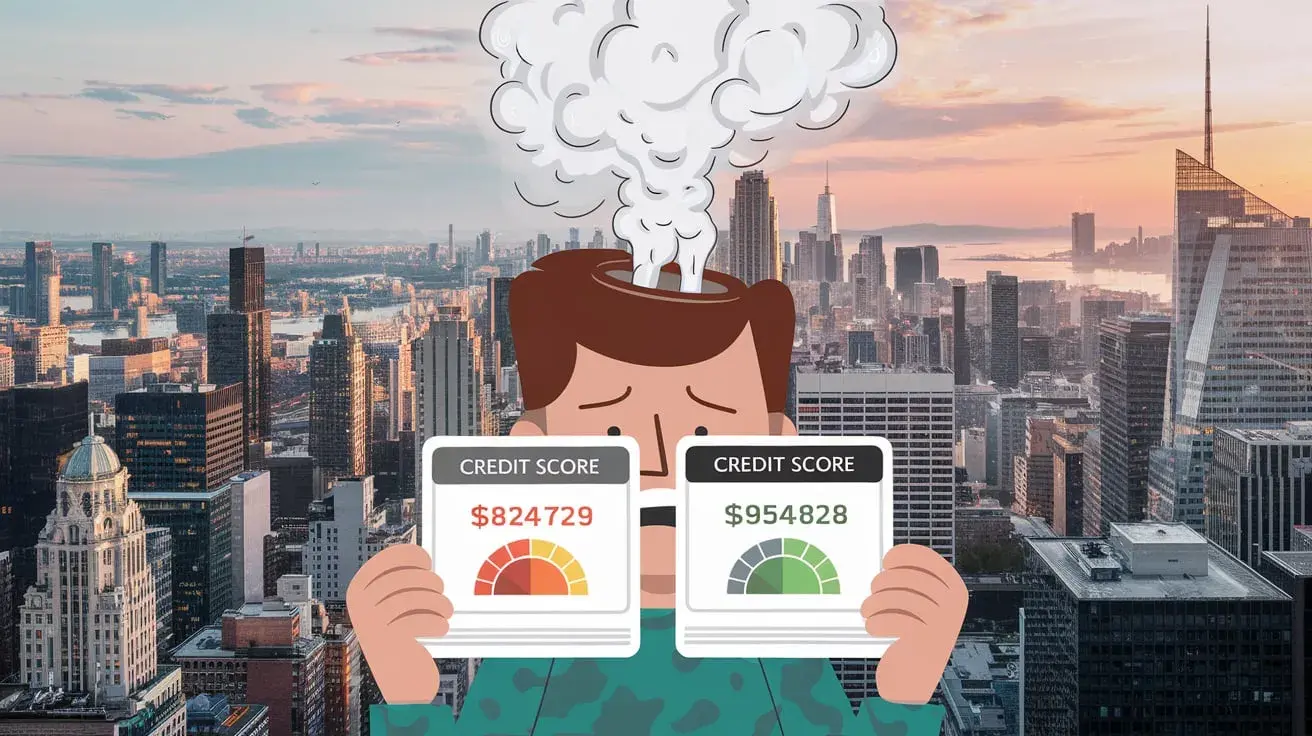-
Posted on: 23 Aug 2024

-
Well, you have most likely come across some people advising you not to frequently monitor your credit score as it would harm it. But why is that the case? What takes place when you are verifying your credit which makes it decrease? This is a detailed insight into how frequently monitoring your credit score negatively impacts your credit score.
What happens when you check your credit
When any company asks for your credit report, the credit bureaus note it as a ‘hard enquiry’, which is a credit check done by the lending institutions when you apply for a loan or a credit card. Such kind of queries may reduce your credit score by a few points and linger on your credit profile for two years.
Soft inquiries, on the other hand, are credit checks you initiate that enemies like potential employers or your current lenders and credit card issuers can run to check on your credit report. The type of inquiries that do not impact your score much, if at all, are those that come with these kinds of requests. Nevertheless, the credit bureau is always updated with the records every time it happens.
Too Many Inquiries
However, if you frequently check your credit report from sources like Credit Karma or your bank, these types of credit checks are not damaging but can accumulate over time. Although one or two such checks would not be a problem, regularly checking your report can let lenders know that you are actively looking for new credit. This is attributed to the fact that too many inquiries tend to make the lenders view you as a high risk when it comes to repaying loans.
While soft inquiries from your credit or those from lenders who already have your credit information do not cause your score to decrease, frequent ones will inevitably affect it if lenders regard you as overly eager to apply for more credit. Therefore, you may experience a drop in approval chances or credit limits here and there.
Lower Risk From One Dimension
Instead of getting information about your credit report by consulting many different sources, you can reduce the number of inquiries by using one or two sources all the time. For instance, instead of checking credit score on Credit Karma monthly, your bank bi-monthly, directly through Experian every couple of months, opt for one that provides access frequently.
As long as it is not several companies, it is unlikely that too many inquiries will be too much of a problem in the eyes of lenders. However, it is advisable to check it once a month or even less frequently to decrease the influence altogether.
Do not worry about these small changes.
By constantly checking your credit, you’re fueling the very stress around every small fluctuation in your scores. However, changes of a few points either above or below that figure from month to month are entirely natural.
Your scores are based on so many factors, including credit card balances and payment history, that it is normal to get slightly different figures. Worrying about losing a couple of points here and there results in constantly checking one’s scores, which means more inquiries.
Use Credit Monitoring Strategically
It is beneficial to subscribe to credit monitoring services that would notify you of significant changes or fraudulent activities that you would want to act on promptly, which include Experian, TransUnion, or Credit Karma. But even these monitoring services result in sa soft inquiry into your reports.
Therefore, to avoid hampering your credit profile while at the same time ensuring that you can keenly monitor your credit status, you should limit yourself to using only one service. Also, do not log in daily to check for changes that occur every day. However, most monitoring services will notify you about large changes to your scores, new credit accounts, payments made, and any other important changes to your credit report, so you only have to log in occasionally.
Perform Annually or before Applying for New Credit
Other than strategic credit monitoring, it is best to check your credit at least once a year or at most before applying for a new large credit line. Yearly checks allow you to view all three bureau reports and look for inconsistencies while not creating too many inquiries from the short-interval checking.
And getting to know your score before applying for a loan, mortgage, credit card, or any other product helps you estimate your probability of getting approved. It is unwise to check frequently when rate shopping for something like a mortgage or auto loan in a short period. However, it is recommended to spread such requests over a few months to mitigate the consequences.
Consider Checking Alternatives
If you want to keep track of your credit reports and not have the inquiries show up on your credit reports, you have a couple of choices. First, you can get your free annual credit reports, which, according to the law, you are entitled to one per year from AnnualCreditReport.com.
This is the government-mandated access to your reports that shows you the current reports from each bureau, although it counts only once a year. Also, certain banks and lending companies provide complimentary credit scores or reports to account holders, but do not contribute to the bureaus. Check with your existing bank and other financial accounts to see if there is a free trial offer.
In Summary
Whenever you run credit reports frequently, your scores are likely to drop because more inquiries are reported. But you aren’t an absolute loser if you have to (or wish to) occasionally check up on your credit status. Just be smart about when and how frequently you use your info. Reducing checks to only one source, making inquiries at least a month apart from each other, and only using reports when necessary can also help you monitor your credit reports without hurting your scores greatly.
Take control of your credit today! Call (888) 803-7889 for personalized solutions.










